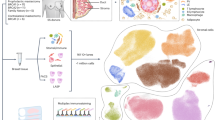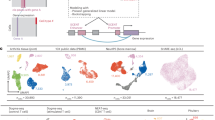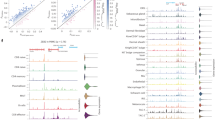Abstract
Two novel estrogen receptor β (ERβ) mRNA isoforms that diverge in their 5′-untranslated regions, ERβ mRNA (0K-1) and ERβ mRNA (0N-1), have recently been identified. This indicates that transcription of the human ERβ gene occurs from at least two different promoters, named promoter 0K and promoter 0N. The aim of this study was to investigate the expression of ERβ isoforms in primary cultures of normal breast epithelial cells, a panel of breast cancer cell lines and in normal breast and breast cancer tissues; and to examine whether methylation of the two ERβ promoters is involved in regulation of ERβ gene expression. Using quantitative real-time PCR techniques, we found that ERβ mRNA levels were significantly lower in breast cancer cell lines than in primary cultures of normal breast epithelial cells. Bisulfite genomic sequencing analysis revealed that two promoters of the ERβ gene exhibit distinct methylation patterns. Promoter 0N was unmethylated in normal breast epithelial cells, but extensively methylated in breast cancer cell lines. In contrast, promoter 0K was unmethylated in both normal and malignant breast epithelial cells. We demonstrated a significant correlation between promoter 0N hypermethylation and loss of ERβ mRNA expression in breast cancer cell lines. Treatment of breast cancer cells with demethylating agent effectively reactivated the expression of ERβ mRNA. The observations from the cell lines were also reflected in primary breast cancer tumors. Thus, expression of ERβ mRNA in breast tumors was found to be inversely associated with the degree of methylation of promoter 0N. Our results suggest that a decreased level of ERβ mRNA may be associated with breast tumorigenesis, and that DNA methylation is an important mechanism for ERβ gene silencing in breast cancer.
This is a preview of subscription content, access via your institution
Access options
Subscribe to this journal
Receive 50 print issues and online access
$259.00 per year
only $5.18 per issue
Buy this article
- Purchase on Springer Link
- Instant access to full article PDF
Prices may be subject to local taxes which are calculated during checkout




Similar content being viewed by others
References
Bieche I, Parfait B, Laurendeau I, Girault I, Vidaud M and Lidereau R . (2001). Oncogene, 20, 8109–8115.
Dotzlaw H, Leygue E, Watson PH and Murphy LC . (1999). Cancer Res., 59, 529–532.
Flouriot G, Griffin C, Kenealy M, Sonntag-Buck V and Gannon F . (1998). Mol. Endocrinol., 12, 1939–1954.
Fuqua SA, Schiff R, Parra I, Friedrichs WE, Su JL, McKee DD, Slentz-Kesler K, Moore LB, Willson TM and Moore JT . (1999). Cancer Res., 59, 5425–5428.
Gardiner-Garden M and Frommer M . (1987). J. Mol. Biol., 196, 261–282.
Garinis GA, Patrinos GP, Spanakis NE and Menounos PG . (2002). Hum. Genet., 111, 115–127.
Gomm JJ, Browne PJ, Coope RC, Liu QY, Buluwela L and Coombes RC . (1995). Anal. Biochem., 226, 91–99.
Gustafsson JA and Warner M . (2000). J. Steroid Biochem. Mol. Biol., 74, 245–248.
Herman JG, Graff JR, Myohanen S, Nelkin BD and Baylin SB . (1996). Proc. Natl. Acad. Sci. USA, 93, 9821–9826.
Hirata S, Shoda T, Kato J and Hoshi K . (2001). J. Steroid Biochem. Mol. Biol., 78, 33–40.
Iwao K, Miyoshi Y, Egawa C, Ikeda N and Noguchi S . (2000a). Int. J. Cancer, 88, 733–736.
Iwao K, Miyoshi Y, Egawa C, Ikeda N, Tsukamoto F and Noguchi S . (2000b). Cancer, 89, 1732–1738.
Jones PL, Veenstra GJ, Wade PA, Vermaak D, Kass SU, Landsberger N, Strouboulis J and Wolffe AP . (1998). Nat. Genet., 19, 187–191.
Karpf AR and Jones DA . (2002). Oncogene, 21, 5496–5503.
Kokura K, Kaul SC, Wadhwa R, Nomura T, Khan MM, Shinagawa T, Yasukawa T, Colmenares C and Ishii S . (2001). J. Biol. Chem., 276, 34115–34121.
Kuiper GG, Enmark E, Pelto-Huikko M, Nilsson S and Gustafsson JA . (1996). Proc. Natl. Acad. Sci. USA, 93, 5925–5930.
Lewandowski S, Kalita K and Kaczmarek L . (2002). FEBS Lett., 524, 1–5.
Leygue E, Dotzlaw H, Watson PH and Murphy LC . (1998). Cancer Res., 58, 3197–3201.
Leygue E, Dotzlaw H, Watson PH and Murphy LC . (1999). Cancer Res., 59, 1175–1179.
Li LC, Yeh CC, Nojima D and Dahiya R . (2000). Biochem. Biophys. Res. Commun., 275, 682–689.
Mangelsdorf DJ, Thummel C, Beato M, Herrlich P, Schutz G, Umesono K, Blumberg B, Kastner P, Mark M, Chambon P and Evans RM . (1995). Cell, 83, 835–839.
Moore JT, McKee DD, Slentz-Kesler K, Moore LB, Jones SA, Horne EL, Su JL, Kliewer SA, Lehmann JM and Willson TM . (1998). Biochem. Biophys. Res. Commun., 247, 75–78.
Nojima D, Li LC, Dharia A, Perinchery G, Ribeiro-Filho L, Yen TS and Dahiya R . (2001). Cancer, 92, 2076–2083.
Ogawa S, Inoue S, Watanabe T, Hiroi H, Orimo A, Hosoi T, Ouchi Y and Muramatsu M . (1998a). Biochem. Biophys. Res. Commun., 243, 122–126.
Ogawa S, Inoue S, Watanabe T, Orimo A, Hosoi T, Ouchi Y and Muramatsu M . (1998b). Nucleic Acids Res., 26, 3505–3512.
Omoto Y, Kobayashi S, Inoue S, Ogawa S, Toyama T, Yamashita H, Muramatsu M, Gustafsson JA and Iwase H . (2002). Eur. J. Cancer, 38, 380–386.
Palmieri C, Cheng GJ, Saji S, Zelada-Hedman M, Warri A, Weihua Z, Van Noorden S, Wahlstrom T, Coombes RC, Warner M and Gustafsson JA . (2002). Endocr. Relat. Cancer, 9, 1–13.
Sasaki M, Tanaka Y, Perinchery G, Dharia A, Kotcherguina I, Fujimoto S and Dahiya R . (2002). J. Natl. Cancer Inst., 94, 384–390.
Skliris GP, Carder PJ, Lansdown MR and Speirs V . (2001). Br. J. Cancer, 84, 1095–1098.
Tate PH and Bird AP . (1993). Curr. Opin. Genet. Dev., 3, 226–231.
Tong D, Schuster E, Seifert M, Czerwenka K, Leodolte S and Zeillinger R . (2002). Breast Cancer Res. Treat., 71, 249–255.
Acknowledgements
We thank Laki Buluwela for supplying one of the normal breast epithelial cell samples. This study was supported by grants from the Swedish Cancer Fund and from KaroBio AB.
Author information
Authors and Affiliations
Corresponding author
Rights and permissions
About this article
Cite this article
Zhao, C., Lam, EF., Sunters, A. et al. Expression of estrogen receptor β isoforms in normal breast epithelial cells and breast cancer: regulation by methylation. Oncogene 22, 7600–7606 (2003). https://doi.org/10.1038/sj.onc.1207100
Received:
Revised:
Accepted:
Published:
Issue Date:
DOI: https://doi.org/10.1038/sj.onc.1207100
Keywords
This article is cited by
-
The role of estrogen receptor beta in breast cancer
Biomarker Research (2020)
-
Methylation of estrogen receptor 2 (ESR2) in deep paravertebral muscles and its association with idiopathic scoliosis
Scientific Reports (2020)
-
Steroidhormonrezeptoren
Zentralblatt für Arbeitsmedizin, Arbeitsschutz und Ergonomie (2020)
-
Inter-Individual Variation in Response to Estrogen in Human Breast Explants
Journal of Mammary Gland Biology and Neoplasia (2020)
-
Mechanisms for estrogen receptor expression in human cancer
Experimental Hematology & Oncology (2018)



